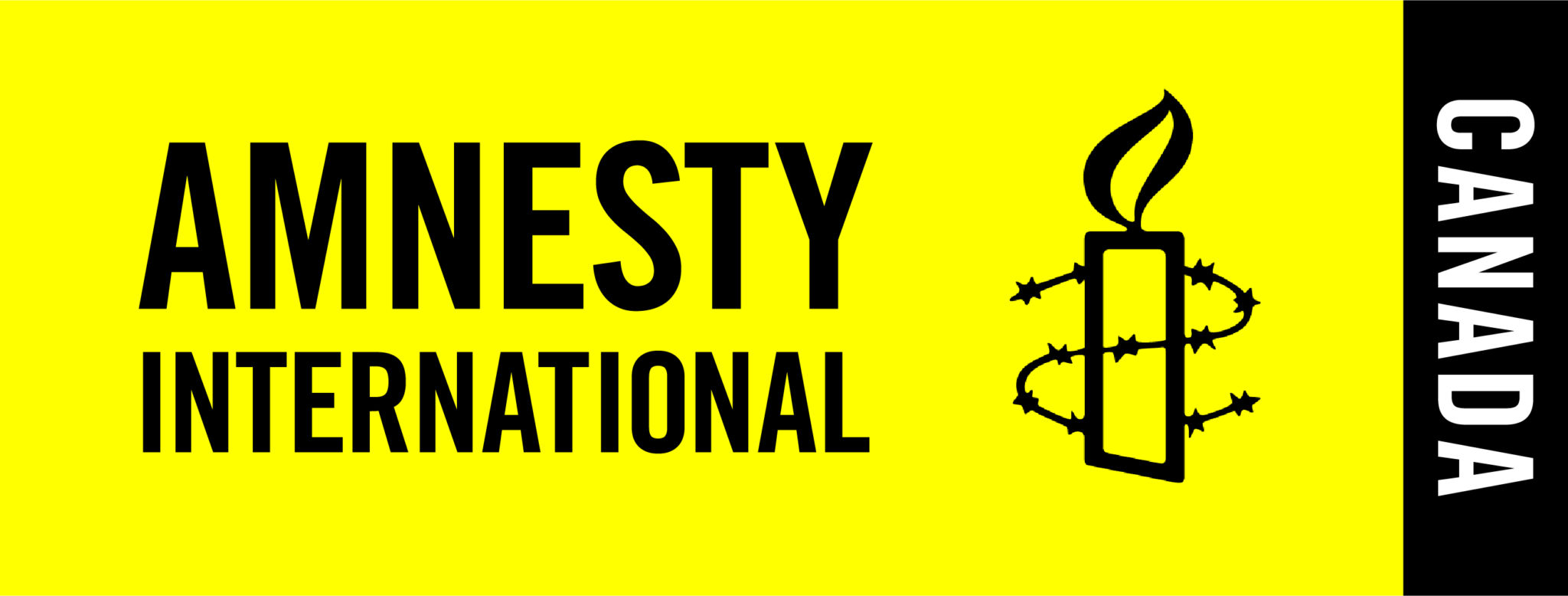Support Wet'suwet'en Land Defenders
Help protect the rights of Wet’suwet’en Nation members and land defenders.
Explore Key Topics
What you will find below
Brenda Michell, K’eltiy
Land Defender
Historical Context
The Wet’suwet’en Nation has over 5000 members organized in five clans: Gil-Seyhu (Big Frog), Laksilyu (Small Frog), Gidimt’en (Wolf/Bear), Laksamshu (Fireweed) and Tsayu (Beaver).
These clans are made up of thirteen matrilineal house groups. Each house group has a House Chief and supporting wing chiefs who hold advisory roles and assist in decision making. House Chiefs represent their houses. The various House Chiefs within a clan collectively represent the entire clan. Under ‘Anuc niwh’it’en (Wet’suwet’en law), each clan has the responsibility and authority to control access to their territories. There are also six Wet’suwet’en bands: Hagwilget Village First Nation, Nee Tahi Buhn Band, Skin Tyee Band, Ts’il Kaz Koh First Nation, Wet’suwet’en First Nation and Witset First Nation.
The Wet’suwet’en Nation, under the governance of its Hereditary Chiefs, is defending its ancestral, unceded territory against the construction of the Coastal GasLink (CGL) pipeline. The pipeline, owned by Coastal GasLink Pipeline Ltd. and TC Energy Corporation is meant to transport natural gas extracted from the Dawson Creek area in British Columbia (B.C.) to a liquified natural gas (LNG) export facility near Kitimat, B.C. If construction of the 670-kilometre-long pipeline is completed, it will divide Wet’suwet’en territory into two.
The Wet’suwet’en have never sold, surrendered or in any way relinquished their collective title to their territories. The Wet’suwet’en Hereditary Chiefs –the ancestral authorities of the Nation according to Wet’suwet’en law and as affirmed by the Supreme Court of Canada’s Delgamuukw-Gisday’wa decision– oppose the pipeline’s construction on behalf of their clans.
For over a decade, Wet’suwet’en land defenders have been constructing what they refer to as “re-occupation sites” across the Yin’tah (Wet’suwet’en territory) as a way of re-affirming their authority over it, as well as to protect it from environmentally destructive projects and industries.
The Wet’suwet’en Hereditary Chiefs have implemented a free, prior and informed consent protocol that requires any visitors to the territory to seek their permission in order to enter. CGL has never received this permission nor consent to operate on Wet’suwet’en territory. In February 2019, Wet’suwet’en Hereditary Chiefs called for a stop work order on the pipeline.
They issued eviction notices to CGL in January 2020 and reaffirmed the eviction in November 2021. Even though the Wet’suwet’en Hereditary Chiefs have consistently withheld their consent for the CGL pipeline project, construction of the pipeline is proceeding without their free, prior and informed consent.
Criminalization of Land Defenders
In December 2019, the British Columbia Supreme Court (BCSC) granted CGL an interlocutory injunction which prevents Wet’suwet’en land defenders and their supporters from blockading the Morice Forest Service Road to attempt to stop pipeline construction in Wet’suwet’en territory. The injunction includes enforcement provisions under which land defenders can be arrested for approaching pipeline construction sites and blockading the road, even though these sites are located on Wet’suwet’en territory. The injunction has permitted CGL to proceed with pipeline construction without adequate consultation and without the Wet’suwet’en Nation’s free, prior and informed consent.
Operating under the injunction, the Royal Canadian Mounted Police (RCMP), its Critical Response Unit (CRU) and CGL’s private security firm, Forsythe Security, intimidate, harass and unlawfully surveil Wet’suwet’en land defenders.
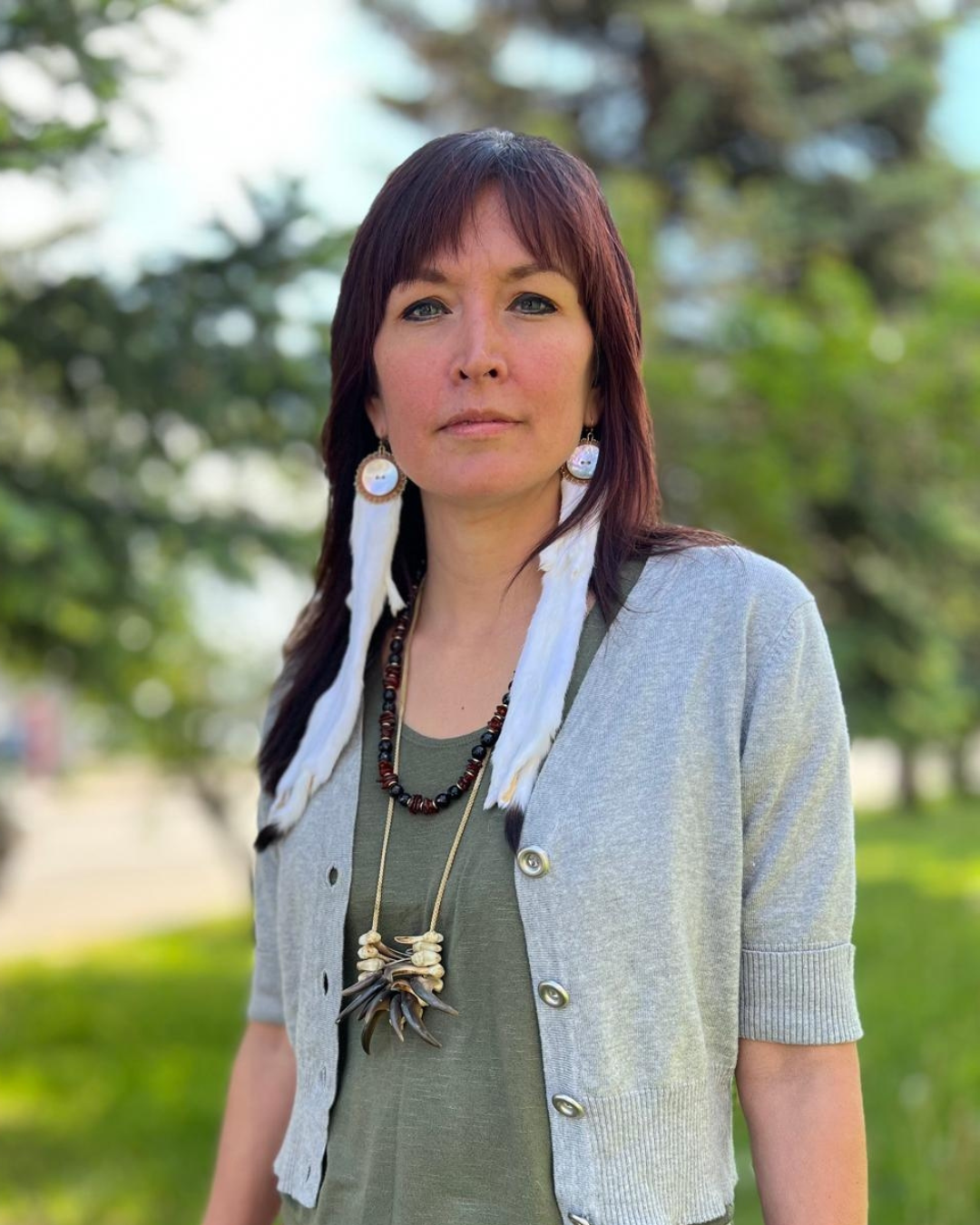
Sleydo' AKA Molly Wickham
Wet'suwet'en Land Defender
The pipeline project has fundamentally altered Wet’suwet’en territory and the Nation’s way of life. Significant police and private security presence have resulted in a profound imposition of heavy, unlawful surveillance and control over land defenders’ daily lives. They are regularly followed, filmed and photographed by the RCMP and Forsythe Security.
From January 2019 to March 2023, the RCMP undertook four large-scale police operations against Wet’suwet’en land defenders and their supporters on Wet’suwet’en territory as a way of enforcing the injunction. During these raids, the RCMP were equipped with semi-automatic weapons, helicopters and dog units.
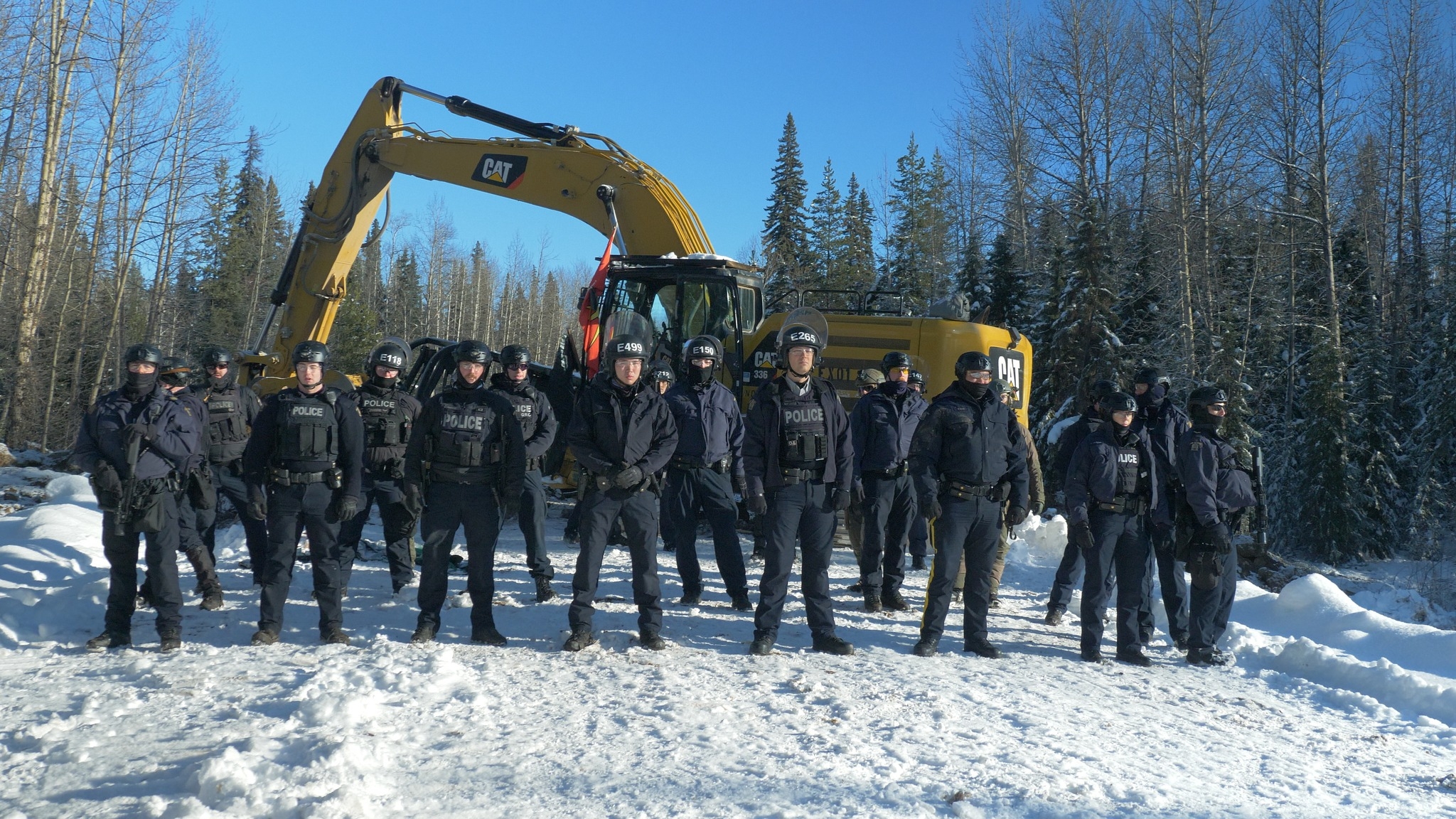
Over 75 land defenders were arbitrarily arrested and detained, solely for exercising their Indigenous rights and their rights to freedom of expression and peaceful assembly.
In June and July 2022, the B.C. Prosecution Service decided to prosecute 20 land defenders with criminal contempt for allegedly disobeying the injunction order to stay away from pipeline construction sites. Five out of the 20 land defenders pled guilty in December 2022 because of their bail conditions, which prohibited them from being on Wet’suwet’en territory and any other frontline resistance against extractive projects across Canada, as well as the psychological and financial impacts that the criminal trial process was having on them. Five others had the charges dropped against them, and three are awaiting next steps.
Several land defenders went on trial in 2023 and 2024. In November 2023, land defender Sabina Dennis was found not guilty of criminal contempt. In January 2024, land defenders Sleydo’ (Molly Wickham), Shaylynn Sampson and Corey (Jayohcee) Jocko were found guilty of criminal contempt, however, their trial is ongoing as the BCSC is considering an application which alleges that their human rights were violated by the RCMP during the raids. Their trial was set to continue the week of 17 June 2024, however, due to health circumstances, the trial was postponed and is currently underway.
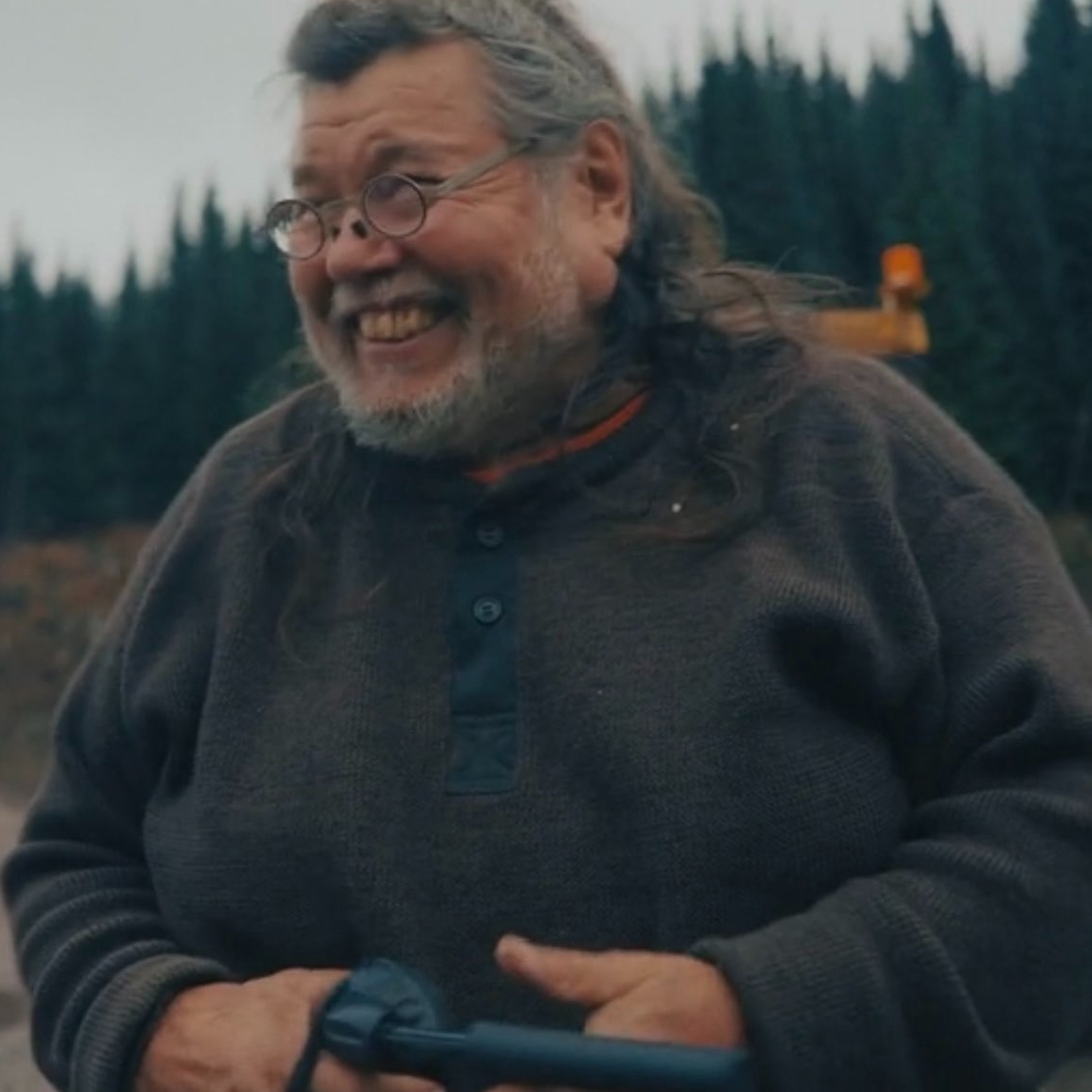
Chief Dsta'hyl: Canada's First Prisoner of Conscience
In February, Likhts’amisyu Clan Wing Chief Dtsa’hyl was found guilty of criminal contempt for violating the terms of the injunction order.
In July, Amnesty International named Wet’suwet’en Chief Dsta’hyl a prisoner of conscience—someone detained solely for peacefully exercising their right to freedom of expression and association.
This is the first time that Amnesty has declared anyone a prisoner of conscience in Canada. Amnesty’s unprecedented announcement came after Chief Dsta’hyl was sentenced to 60 days of house arrest for defending the territory of Wet’suwet’en First Nation.
The federal and British Columbia governments targeted Chief Dsta’hyl for exercising his Indigenous and Charter rights when he opposed a massive gas pipeline that is being constructed right through the territory of the Wet’suwet’en.
Photo: Likhts’amisyu Clan Wing Chief Dtsa’hyl. Photo by Alli McCracken.
The criminalization, intimidation and harassment of Wet’suwet’en land defenders form part of a concerted effort by the State to remove them from their ancestral territory to allow pipeline construction to proceed. These actions have resulted, and continue to result, in ongoing violations of the human rights of Wet’suwet’en land defenders and their supporters, including the right to life, liberty, security of the person, privacy, family life, non-discrimination, culture and their collective rights as Indigenous Peoples.
Women Wet’suwet’en land defenders have experienced both threats and acts of gender-based violence and discrimination. Wet’suwet’en and other Indigenous land defenders have experienced racial discrimination. Amnesty International also considers that CGL, and its private security company Forsythe Security, have played a role in the unlawful surveillance, intimidation, and harassment of Wet’suwet’en land defenders and therefore, have failed to respect their human rights.
In December 2023, Amnesty International released the impactful report titled ‘REMOVED FROM OUR LAND FOR DEFENDING IT’ that exposes the human rights violations committed by Canadian authorities, British Columbia, CGL Pipeline Ltd., TC Energy and Forsythe Security against those opposing the pipeline through Wet’suwet’em territory.
Wet’suwet’en solidarity protest, Mexico City. Photo by Alli McCracken, Amnesty International.
A conversation with Chief Dsta'hyl: Canada's First Prisoner of Conscience
Sleydo’ (Molly Wickham), a Wing Chief of the Gidimt’en Clan of the Wet’suwet’en Nation, delivered these remarks to the court at her October 2025 sentencing - speaking in the face of Canada’s ongoing criminalization of Indigenous land defenders.
“From 1885 to the mid 1930s, for over 45 years, canada implemented the reserve pass system to control the movement of Indigenous people and remove us from our lands. The reserves became our prisons.
“From 1927 to 1951, for 24 years, canada implemented Section 141 of the Indian Act making it illegal to hire legal counsel to seek remedy through the courts for the theft of our lands.
“From 1920 to 1958, nearly 40 years, the rule of law in canada forced Indigenous children into residential schools and criminalized parents who tried to stop it. Our people were jailed for trying to protect our children.
“These laws and policies were put into place to deter us from being Indian. To punish us for being Indian. And yet, here we are, in 2025, holding onto what is left.
“It is my duty as a mother of 3 beautiful Indigenous children to inform the court that we are more than our songs and dances. As our ancestors said, “we are the land and the land is us” We are nothing without our land.
“canada cannot keep using the police and the courts to relieve themselves of the fact that our lands have never been ceded or surrendered.”
Sleydo' AKA Molly Wickham
Wet'suwet'en Land Defender
Amnesty International’s main objective is to ensure stopping the criminalization of Wet’suwet’en and other indigenous land defenders, including, dropping the criminal charges against land defenders who are awaiting trial.
Through our campaign, we aim to:
- Ensure that Wet’suwet’en land defenders are able to defend their territories safely and without fear of reprisals or criminalization.
- Advocate for the prompt, independent and impartial investigation of incidents of harassment, intimidation, threats and unlawful surveillance committed against members of the Wet’suwet’en Nation and other land defenders by the RCMP, employees of CGL and private security agents.
Our efforts are directed to pressure the Governments of Canada and British Columbia to:
- Respect and protect the rights of Indigenous Peoples, specifically the right to consultation and to obtain free, prior and informed consent, and ensure that the manner in which they consult with Indigenous Peoples is in line in international human rights law and standards.
- Adopt measures to ensure that injunctions are not used to infringe the human rights of Indigenous Peoples, including forcibly removing them from their territories.
- Halt fossil fuel projects and urgently phase out all fossil fuels.
Will you join us to help protect the rights of Wet’suwet’en Nation members and land defenders?
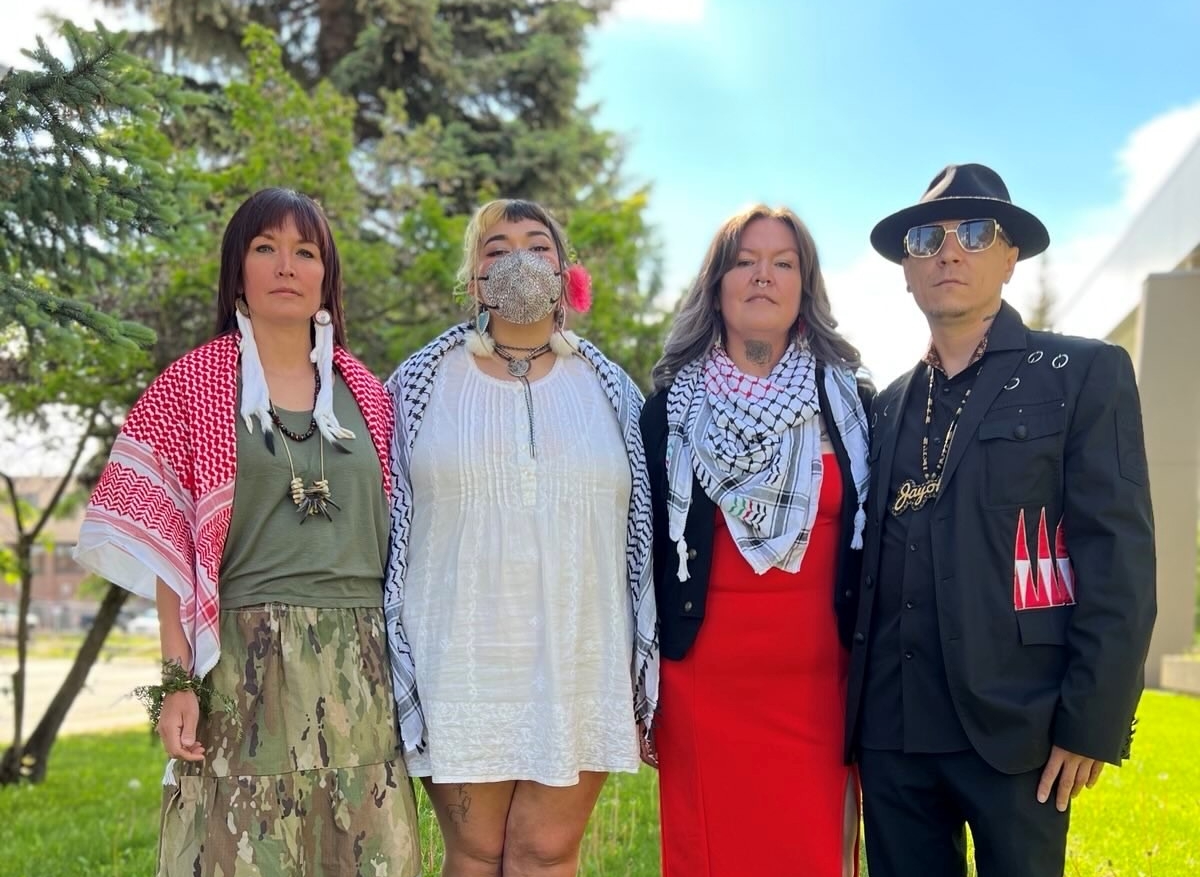
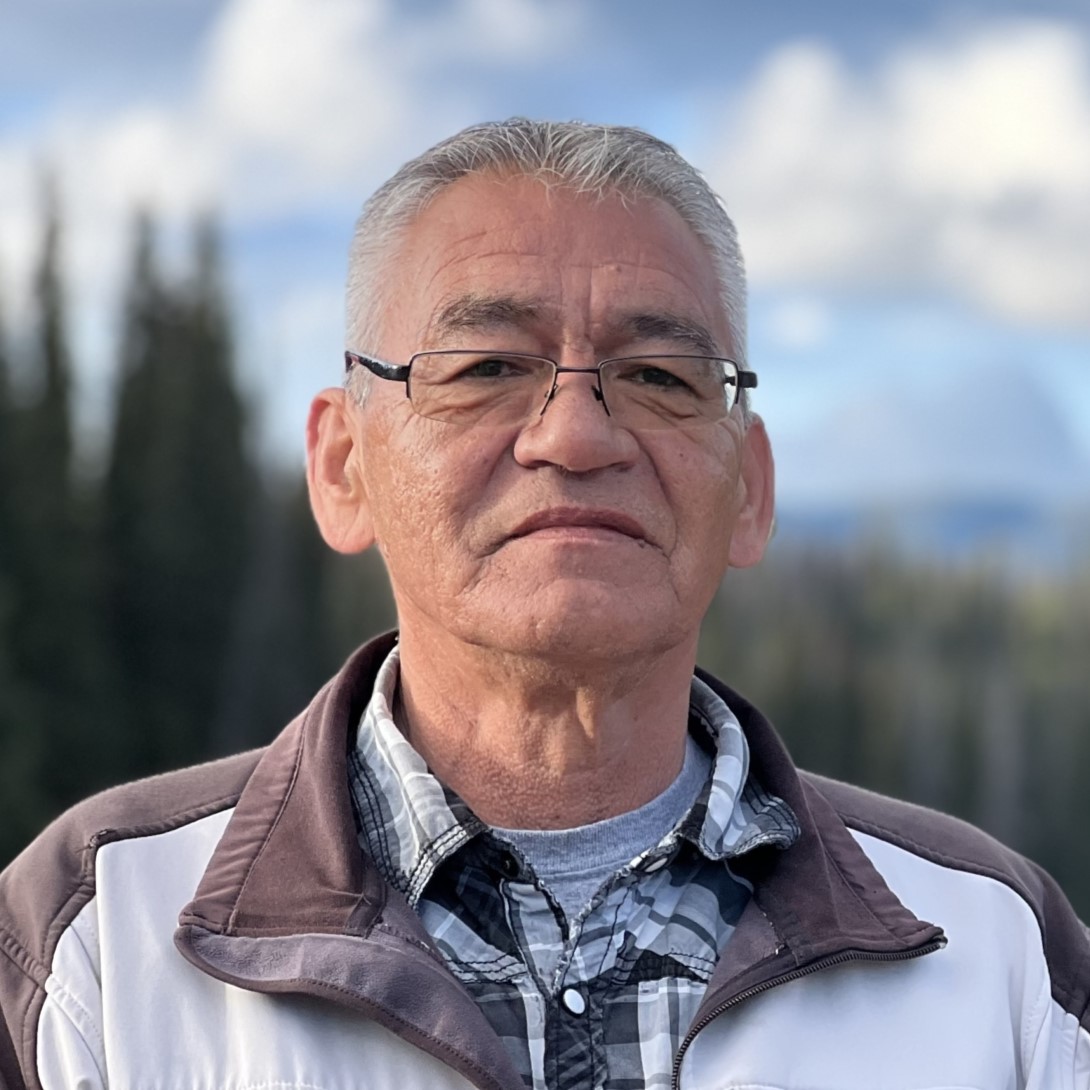
Chief Na’Moks
Hereditary Chief of the Wet’suwet’en Nation
Hereditary Chief Na’Moks of the Wet’suwet’en Nation (Photo: Alli McCracken, Amnesty International)
IT'S TIME TO TAKE A STAND FOR TRUTH AND JUSTICE.
- Amnesty International Canada © 2026
